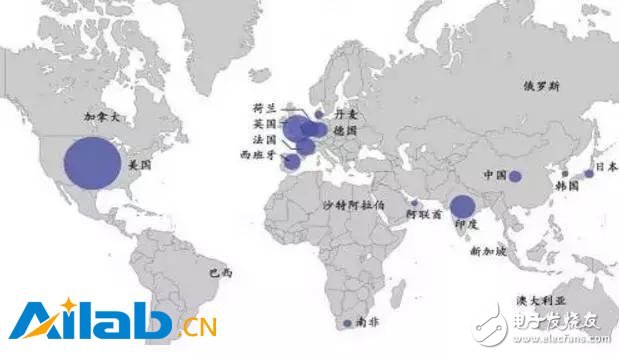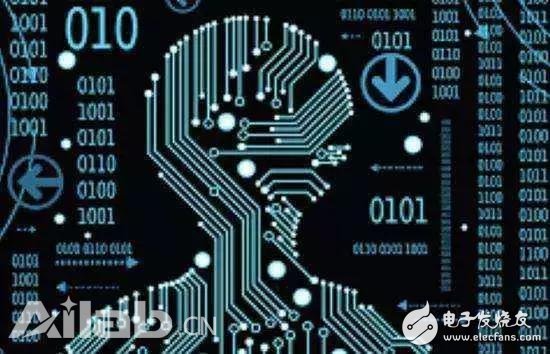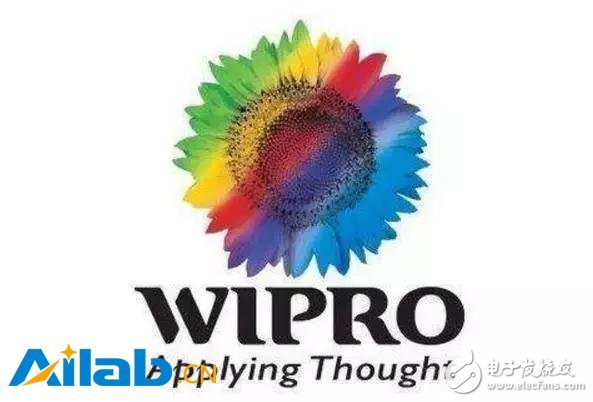In various industry reports, the identity of the artificial intelligence giant seems to have begun to settle.
For example, a large number of reports mentioning Google, Facebook, Microsoft, Apple, Amazon, and China's BAT in the United States are beginning to occupy the entire field of artificial intelligence.
These giants have three characteristics: 1 investment and layout of a large number of different new AI industry lines; 2 a variety of business itself began to fully join AI, and even AI; 3 spare no effort to rob AI talent.
But if you let the line of sight deviate, look at the artificial intelligence city outside of China and the United States. For example, India, which claims to be the third strongest country of artificial intelligence, may find that there is no universal AI giant enterprise.
Although artificial intelligence has become commonplace in Indian Internet companies, such as travel software Ola Cabs, mobile payment Paytm, and ShopClues in the e-commerce sector, artificial intelligence technology has been used to improve user experience and product efficiency. However, there are very few AI large-scale households with a wide range of layouts.
This status quo is likely to be rewritten in the short term.

(Leading global AI talent statistics: India is not worse than China)
In recent months, many reports in the English-speaking world have begun to pay attention to the troika Infosys, Tcs, and Wipro in India's traditional IT service industry are fiercely investing in AI. The three AI-based software outsourcing and IT service industries represented by the three companies may become a high probability event.
Three old gunmen's AI journeyTcs, Infosys, and Wipro (Chinese translation for Tata Consultancy Services, Infosys and Wipro, but it's a bit of a circumstance, here in English) have witnessed India's years in the world's IT arena, and Bangalore Becoming the attacking years of the city of software.
Among the three IT service companies, Infosys is the youngest, but it was also established in 1981. The oldest one is TCS under the Tata Group, the "Indian First Company". It started the idea of ​​IT services in 1968.
Although the three companies are still dominated by the Asian IT service industry, the situation is inevitably reminiscent of the film "Three Old Gunners" released this year.
In the global mobile Internet wave, although the three companies have many layouts, they have not entered the market. With the rapid development of cloud computing and the trend of unmanned IT, the Indian software service industry, which traditionally relies on cost advantages to obtain a large number of US orders, is also facing a more serious threat.
Originally, the US technology industry will develop and maintain costs, and grafting it to labor-intensive India is an expedient measure. And when these costs were gradually eliminated by technological development and Moore's Law, the once-popular "Bangalore model" lost its absolute value.

But what's interesting is that these three companies have not died down. In the new two-year campaign, we will be surprised to find that the three major companies have begun to promote low-manual, customized artificial intelligence solutions, and continue to invest and acquire Indian artificial intelligence, even American artificial intelligence start-ups.
In the financial report of the three major companies, we can easily find the words "artificial intelligence", "neural network" and "brain science".
It seems that the old gunmen are already eager to try and are ready to return to the rivers and lakes.
The team that fell in the Internet era is now becoming the capital of the queueAt the beginning of this year, TCS released a global technology trend report entitled "How artificial intelligence is improving the performance of global companies." One of them said that it is particularly good: there will be only two companies in the future, one with artificial intelligence and one without profit. (Look at the level of this copy of the people, it is strongly recommended that the big domestic households brush it to the subway advertisement!!)
Regardless of the authenticity of this assertion, at least the ambition and hunger of traditional IT giants in India when looking at artificial intelligence can be seen. In the era of mobile Internet, it is difficult to think that India is successful. The problem of slow popularity of smartphones and the untimely transformation of traditional IT companies have made India lose its former luster in the era of mobile centralization. Although it is catching up today, it is still difficult to avoid becoming a value exporter of the United States and China.

However, the ubiquitous and decentralized features of artificial intelligence seem to have led the way back to the traditional strengths of the Indian IT industry. The main business of Tcs, Infosys and Wipro is to provide IT solutions and services to customers, providing system integration, network integration, software solutions and other IT services. And artificial intelligence happens to be a technology that is very tightly integrated with IT business. In this year's TCS report, "There is no doubt that the biggest adopter of artificial intelligence technology is the IT department, because nearly two-thirds (67%) of respondents said that the main purpose of artificial intelligence is to detect security intrusion. And provide automated services for certain programs, etc."
The needs of users determine the special needs of suppliers, and it is logical for Indian IT companies to start providing artificial intelligence services.
In addition, compared with mobile payment, mobile travel, e-commerce, mobile phones and other specialized categories of enterprises, the three major IT service companies are currently the most widely deployed economies in India.
With China's BAT three in the PC, mobile era, the upper ranks, the wide layout is different. Most of India's mobile Internet companies are the "Gurgaon's new cuttings" that have emerged in the past two years. The foundation is relatively thin, and the layout ability and capital cannot match the predecessors of Bangalore.
In this case, it is a more fundamental support for IT service companies to deploy artificial intelligence as widely as Google and Microsoft.
For example, we noticed that TCS recently laid out the country's first Internet of Things system in India, and also began to provide technical support for the unmanned layout of the Tata Group. Infosys and Wipro are also investing heavily in and deploying global artificial intelligence start-ups, and providing artificial intelligence IT business transformation and commercial upgrade services.
It seems that in the actual situation in India, the three IT service companies are more suitable for the panoramic, wide-ranging artificial intelligence landing. It has even become a platform supporter behind other related companies.
Another notable phenomenon is that the characteristics of IT service companies themselves are more industrialized and engineered. Therefore, the artificial intelligence services provided by such companies will also have a clearer industrial orientation.

For example, in the AI ​​development platform battles involving Google, Facebook, Microsoft, and domestic Ali and Baidu. Infosys highlights Infosys Mana, a machine learning platform that is uniquely positioned to drive system automation. Wipro's HOLMES is also a similar artificial intelligence platform, focusing on virtual agents, predictive systems, and automation of cognitive processes. And provide a development environment for knowledge representation and unmanned devices.
Both Indian-style artificial intelligence platforms are dedicated to combining knowledge representation with machine learning. It is led by better R&D and targeted industrial applications. Compared with the European and American development platforms based on research and development, it seems that the directivity and application are more clear.
All these, it is not difficult to see that the Indian IT service industry is close to the artificial intelligence era full of imagination. The hidden possibility behind this is that India may be able to fall back on the vocabulary of grievances: globalization.
India may re-love globalization in the AI ​​eraIndia's deep colonial history and open information environment have allowed this magical country to allow for several times in the world's technological trends.
As early as the 1970s and 1980s, a large number of connected labor, English communication barriers, and a loose government environment allowed India to receive the huge dividend brought about by the information technology revolution.
By "selling" for Europe and the United States, India once earned a lot of money. However, this model began to have problems in the PC era: the excessive concentration of the service industry has reduced the development space of the independent hardware industry, resulting in the independent opening of India's independent manufacturing and market.
With the advent of the mobile Internet era, the problem of the lack of local representative brands has become increasingly serious. Open environment and language communication, let European and American hardware and APP enter India without any block. Gradually, mobile traffic in various fields has been snatched by giants such as Google and Facebook. With the entry of Chinese mobile phones and applications, Indian Internet brands are further weakened.
In the past two years, Indian technology, which is aware of the seriousness of the problem, is also catching up. E-commerce, travel, mobile payments and other models that set off waves in China began to be supported by Indian brands.

And while the mobile Internet in India is on the rise, artificial intelligence is coming again.
Unlike the mobile Internet, artificial intelligence works on a wider range of business needs and business models. From the current revenue point of view, corporate customers far exceed personal customers as the first commercial source of artificial intelligence. The decentralization feature brought by this model may open an upgrade shortcut for India's reserved IT service industry: the work of “hands-on†has become unprecedentedly important and complicated. Isn't it the model that Indians like?
Of course, how to say it in the future is hard to say. The trajectory of technology development is often unpredictable. But don't underestimate the ability of South Asian elephants to engage in the rain in the era of artificial intelligence.
After all, everyone just has something different, it is difficult to say absolutely weak and weak. From another perspective, the different rise of Indian artificial intelligence may become an opportunity for Chinese and Chinese companies.
Android is an open source mobile operating system based on Linux platform released by Google at the end of 2007, and then improved for use in netbooks and MIDs. The platform consists of operating system, user interface and application software, and is claimed to be the first truly open and complete mobile software for mobile terminals.
To put it simply, the Android system is actually a very open system. It can not only realize the functions of the most commonly used notebook computers, but also realize various directional operations like mobile phones. Moreover, it is specially designed for mobile phones. The operating system developed for equipment has advantages in system resource consumption and human-computer interaction design. It is an operating system that combines traditional and advanced advantages.
New Android Tablet,Android Tablet,New Android Tablet
Jingjiang Gisen Technology Co.,Ltd , https://www.gisentech.com